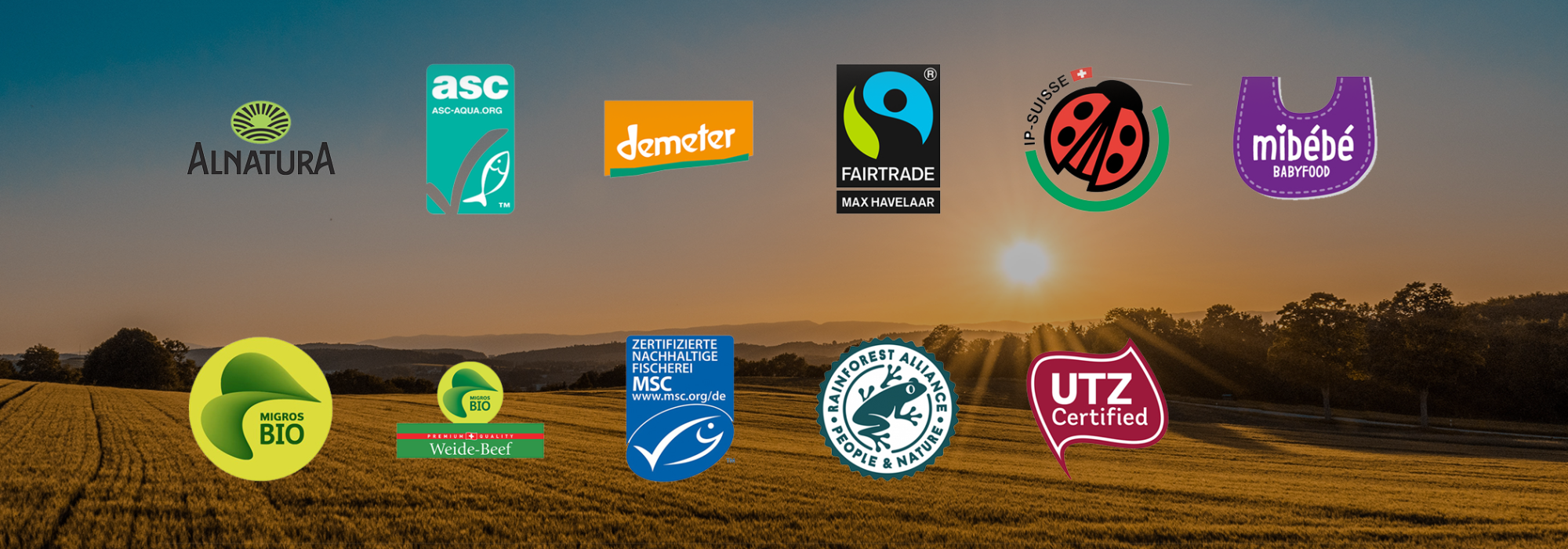The allure and deception of green labels
We often hear that we as consumers have the responsibility and the power to support reaching the Sustainable Development Goals with our consumption decisions. This might be possible if firms would be completely transparent about the environmental impact of their products. However, what if we lack adequate information? In theory, labels and certification schemes are supposed to help us making informed consumption decisions. However, everyone interested in sustainability probably knows the following experience when doing groceries. We face an increasing number of sustainable labels. Many logos are designed in green colours and look similar. For us consumers it is very hard to distinguish between labels that are trustworthy and such that might promise more than they deliver. Of course, we could try to inform ourselves about the production process and the supply chains. However, even if we are willing to invest the time and energy, the problem is that we are usually confronted with information asymmetry1,2, which means that we as consumers have less information about the product compared to the manufacturer. Sometimes companies have their own internal certification programme3, and they describe on their websites all the criteria they claim to meet. Can we trust this information? Even if a label is monitored by regulatory authorities, this process is often unreliable, and labels fail to provide credible quality assurance4,5.
Producers’ claims vs. consumers’ trust
In collaboration with Charles Efferson and Sonja Vogt (both work in the Department of Organizational Behavior, University of Lausanne, HEC.), we have developed a simple model, which mimics the basic decisions of a producer and a consumer6. The manufacturer decides how environmentally friendly the production is, and what price she’ll charge for her product. The consumer, on her end, can’t observe the sustainability of the product. What she sees is the price, and based on that, she decides to purchase the product or not. Hence, the price functions like a label that can signal information about sustainability. However, whether the price is a useful signal depends on the reliability of monitoring by an external regulator. The manufacturer knows how strictly its production is monitored, but the consumer might not. Our model describes our everyday experiences. We go shopping and observe prices and labels, but we don’t have enough information to judge whether we can trust these signals.
We show that green preferences among consumers can exacerbate greenwashing. This problem is especially prevalent if consumers are misinformed and place too much trust in the credibility of green labels. Producers who don’t care about sustainability ride the coat tails of reliable certifications and take advantage of consumers who are willing to pay a price premium for seemingly sustainable products7,8. They are greenwashing by investing in sustainable labels, but producing in ways that harm the environment9. Under those circumstances, promoting eco-friendly values among manufacturers can be an effective strategy for policymakers aiming to achieve sustainable outcomes. Alternatively, enforcing more reliable production controls and providing consumers with more transparent information can also counteract the problem of greenwashing.
In our paper6, we highlight some of the challenges posed by the spread of misinformation and false beliefs. And we consider obstacles that might hinder a broad shift towards environmentally friendly behavior and examine their implications for sustainable consumption and production. For a rapid transition to a sustainable future, it is critical that we accelerate our efforts to address these complex issues.
References
1. Golan, E., Kuchler, F., Mitchell, L., Greene, C., and Jessup, A. Economics of food labeling.
Journal of Consumer Policy, 24(2):117–184, 2001.
2. Horne, R.E. Limits to labels: The role of eco-labels in the assessment of product sustainability and routes to sustainable consumption. International Journal of Consumer
Studies, 33(2):175–182, 2009.
3. Giuliani, E., Ciravegna, L., Vezzulli, A., and Kilian, B. Decoupling standards from practice:
The impact of in-house certifications on coffee farms’ environmental and social conduct.
World Development, 96:294–314, 2017.
4. Nilsson, H., Tunçer, B., and Thidell, Å. The use of eco-labeling like initiatives on food
products to promote quality assurance—is there enough credibility? Journal of Cleaner
Production, 12(5):517–526, 2004.
5. Van Amstel, M., Driessen, P., and Glasbergen, P. Eco-labeling and information asymmetry:
a comparison of five eco-labels in the netherlands. Journal of Cleaner Production, 16
(3):263–276, 2008.
6. von Flüe, L., Efferson, C., & Vogt, S. Green preferences sustain greenwashing: challenges in the cultural transition to a sustainable future. Philosophical Transactions of the Royal Society B, 379(1893), 2024. doi: https://doi.org/10.1098/rstb.2022.0268.
7. McFadden, J.R. and Huffman, W.E. Willingness-to-pay for natural, organic, and conventional foods: The effects of information and meaningful labels. Food Policy, 68:214–232, 2017. doi: https://doi.org/10.1016/j.foodpol.2017.02.007.
8. Li, S. and Kallas, Z. Meta-analysis of consumers’ willingness to pay for sustainable food
products. Appetite, 163:105239, 2021.
9. Seele, P., & Gatti, L. (2017). Greenwashing revisited: In search of a typology and accusation‐based definition incorporating legitimacy strategies. Business Strategy and the Environment, 26(2), 239-252.
-

Lukas von Flüe
Currently, I am a PhD student at the Faculty of Business and Economics of the University of Lausanne. I mainly work on the cultural evolution of social norms in the context of sustainability, using behavioral experiments, game theory, and agent-based modeling.

